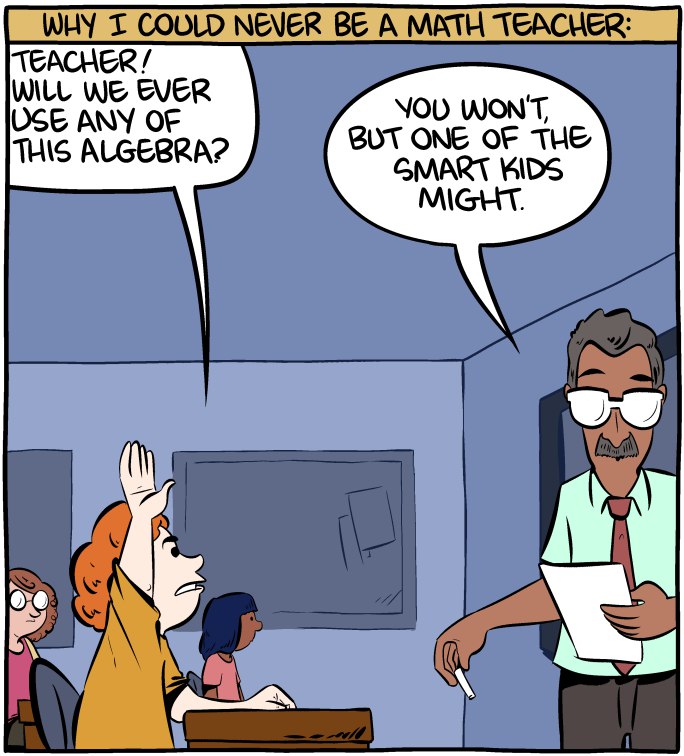Ranter
Join devRant
Do all the things like
++ or -- rants, post your own rants, comment on others' rants and build your customized dev avatar
Sign Up
Pipeless API

From the creators of devRant, Pipeless lets you power real-time personalized recommendations and activity feeds using a simple API
Learn More
Comments
-
@Demolishun I dont do drugs. I dont need to. I'm high on life!
And math.
Not meth.
Math. -
I knew instantly that this rant is written by you, Wisecrack! 😄
Reminds me of that one rant where you thought that you found a way to quickly do prime factorization.
Even though I don’t know much about that topic, I’ll say that I have seen enough numberphile to be confident that factorization cannot be reduced to addition and subtraction. There is so much research on that topic that it would have been discovered already if it was possible. -
@Lensflare actually the "easy" part is taking v and finding divisibility rules for it +/- n
Where n is some product p - v
Why factor v instead of p though?
I guess I didnt explain. That's my fault. I Tend to jump to conclusions.
Being able to find and factor v let's us set a *very tight bound* on what the smaller factor of p is (assuming p is the product of two non trivial primes)
Hence why I asked about finding the product of all factors under some value without having to do the whole chain.
Because for example I know there are methods for doing something similar with the fibonacci sequence (find the value at index n), or finding the nth digit of pi for example.
A lot of these are shitposts, occasionally though they are genuine ignorance. And rarely, they're thought exercises: the goal is to ask "what if this improbably thing were approached from this unexpected angle?"
Also numberphile is great. Glad to find another fan.
Related Rants


 Math is hard.
Math is hard. When you wanted to know deep learning immediately
When you wanted to know deep learning immediately :)) finally a good answer
:)) finally a good answer
Is there any exact way to get the product of all primes under n multiplied together, without explicitly knowing what those primes are?
Lets call this number V.
Because hypothethetically, if we calculate from the *base* of V, then we can derive easy divisibility rules for V-1 and V+1, as laid out
here:
https://notaboutapples.wordpress.com/...
And then, unless I've misunderstood something, the problem of factorization has been changed from division into an addition and subtraction problem.
question
factorization
prime factorization
math